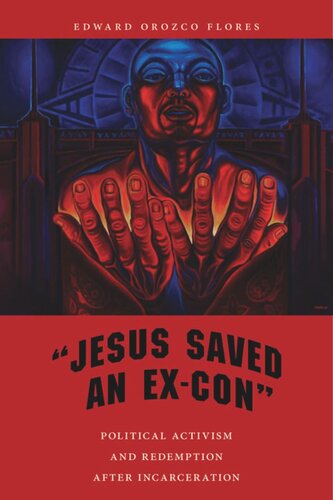

Most ebook files are in PDF format, so you can easily read them using various software such as Foxit Reader or directly on the Google Chrome browser.
Some ebook files are released by publishers in other formats such as .awz, .mobi, .epub, .fb2, etc. You may need to install specific software to read these formats on mobile/PC, such as Calibre.
Please read the tutorial at this link: https://ebookbell.com/faq
We offer FREE conversion to the popular formats you request; however, this may take some time. Therefore, right after payment, please email us, and we will try to provide the service as quickly as possible.
For some exceptional file formats or broken links (if any), please refrain from opening any disputes. Instead, email us first, and we will try to assist within a maximum of 6 hours.
EbookBell Team

4.8
104 reviewsAn examination of the efforts of faith-based organizations to expand the rights of the formerly incarcerated
The use of religion to rehabilitate and redeem formerly incarcerated individuals has been a cultural touchstone of the modern era. Yet religious outreach to those with criminal records has typically been associated with an emphasis on private spirituality, with efforts focused on repentance, conversion, and restorative justice. This book sheds light on how faith-based organizations utilize the public arena, mobilizing to expand the social and political rights of former inmates.
In “Jesus Saved an Ex-Con,” Edward Orozco Flores profiles Community Renewal Society and LA Voice, two faith-based organizations which have actively waged community organizing campaigns to expand the rights of people with records. He illuminates how these groups help the formerly incarcerated re-enter broader communities through the expansion of citizenship rights and participation in civic engagement.
Most work on prisoner reentry has focused on how the behavior of those with records may be changed through interventions, rather than considering how those with records may change the society that receives them. Flores explores how the formerly incarcerated use redemption scripts to participate in civic engagement, to remove the felony conviction question from employment applications and to restrict the use of criminal background checks in housing and employment. He shows that people with records can redeem themselves while also challenging and changing the way society receives them.